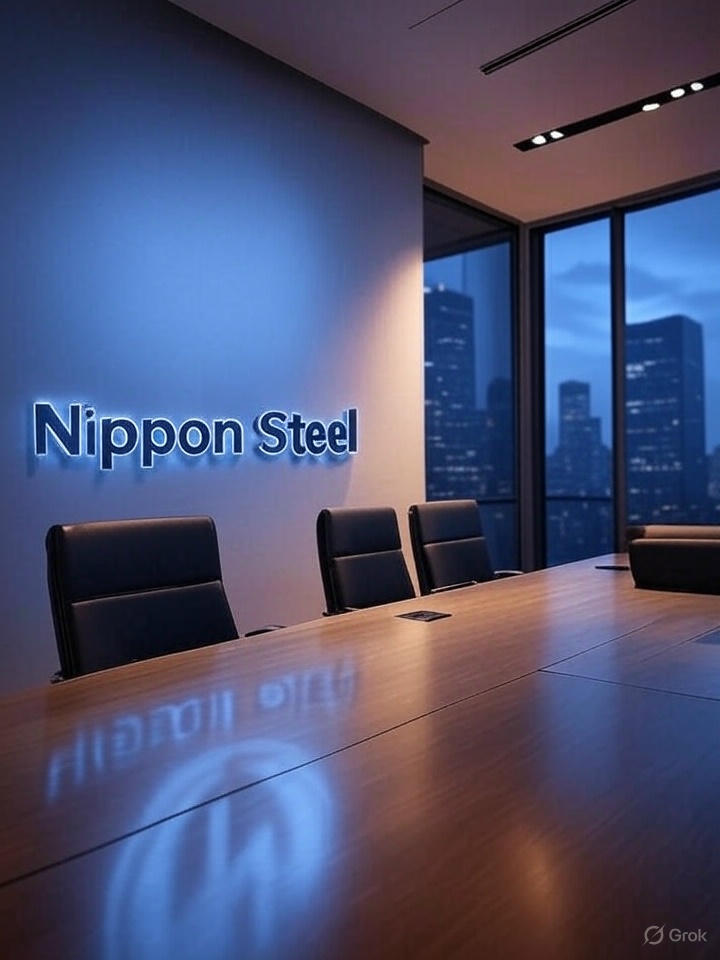President Donald Trump may have some control over U.S. Steel if the White House is to be believed. Trump would have unique influence over the operations of the U.S. Steel under the terms of what the White House calls an “investment” being made by Japan-based Nippon Steel in the iconic American steelmaker.
Nippon Steel’s $14.9 billion acquisition of U.S. Steel, approved in June after an 18-month regulatory review, marks a significant moment in the U.S.-Japan industrial relations. The deal includes a unique “golden share” provision giving the U.S. government veto power over key decisions like plant closures and outsourcing to protect national security.
Nippon Steel has committed to investing at least $11 billion by 2028 to modernize the U.S. Steel’s infrastructure and preserve jobs. While this move aims to strengthen the American steel industry, it has faced criticism from labor unions concerned about job security and government influence over corporate decisions.
READ: Nippon Steel proposes $7 billion investment to revive U.S. Steel merger (March 28, 2025)
Commerce Secretary Howard Lutnick posted on social media on Saturday how the “golden share” to be held by the president would operate, revealing that the White House is willing to insert itself aggressively into a private company’s affairs even as it has simultaneously pledged to strip away government regulations so businesses can expand.
“The Golden Share held by the United States in U.S. Steel has powerful terms that directly benefit and protect America, Pennsylvania, the great steelworkers of U.S. Steel, and U.S. manufacturers that will have massively expanded access to domestically produced steel,” Lutnick posted on X.
However, not everyone seems to be happy with the direction of this deal. On Sunday, the United Steelworkers, the labor union representing the U.S. Steel employees posted a letter raising questions about the deal forged by Trump, who during his run for the presidency had pledged to block Nippon Steel’s acquisition of the U.S. Steel.
The union said it was “disappointed” that Trump “has reversed course” and raised basic questions about the ownership structure of U.S. Steel.
“Neither the government nor the companies have publicly identified what all the terms of the proposed transaction are,” the letter said. “Our labor agreement expires next year, on September 1, 2026, and the USW and its members are prepared to engage the new owners” of U.S. Steel “to obtain a fair contract.”
This arrangement signals a shift toward more direct government involvement in corporate affairs, especially in industries deemed vital to national security. For Trump, it highlights a complex balancing act between promoting foreign investment and protecting American jobs and industries. For U.S. Steel, the deal promises significant investment and modernization, which could revitalize the company but also raises concerns among workers about job security and transparency. Nippon Steel gains a foothold in the U.S. market but must navigate increased government oversight.
How this partnership unfolds will likely influence future policies on foreign investment and government intervention in key American industries. It also sets a precedent for increased government control in private sector operations, especially in strategic industries.


AloJapan.com